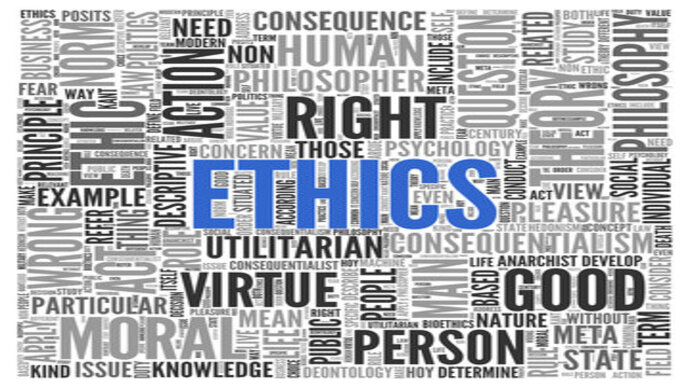Politics, philosophy, and rights share symbiotic relationships. To understand any one of them in a vacuum is akin to doing disservice to the discourse itself – nipping it short from its maximum potential. In 1958, Isaiah Berlin in his inaugural lecture Two Concepts of Liberty that was later published as Four Essays on Liberty, says that political theory is a branch of moral philosophy, which starts from the discovery, or application, of moral notions in the sphere of political relations.1 Political relations which form the State ultimately determine rights. Rights in general is seen from the view of State. The question of obedience and coercion has intrigued humanity since the very beginning. Freedom and liberty thus automatically come into this discussion as a central theme. Berlin understands liberty in two ways – positive and negative. Positive liberty can be understood as “Freedom to”, and Negative liberty as “Freedom from” or non-interference. The former questions the authority or source which will determine which acts will be appropriate as compared to other. It will sometimes go out of its way to ensure that your rights are ensured, even if it means curbing someone else’s extraneous actions. The latter questions which area of human action has to be left uninterred according to one’s freedom. These premises are idealistic in nature, and it is difficult to come to a grand narrative due to value pluralism. For example: From the view of the State, positive liberty can be interpreted in such a manner that gives State the onus to determine appropriateness on the lines of the parens patriae principle. But this brings us to a circular argument as well. People say that individual values are different and hence, we cannot make universal laws for it, lest it infringes someone’s freedom. But value pluralism is all the more reason to have universal laws as conflicting ideologies determine how people behave, and non-homogenous behaviours on universal concepts like rights and freedom are likely to cause conflict.
Positive and negative liberty can be interpreted differently based on cultural differences as well. For example: The Chinese philosophy of Fa2 prescribes an internal code of conduct through which individuals will have to hold themselves up to certain standards. Western philosophy puts an exclusive focus on rights from the lens of individualism. Certainly, Western political thought is different from its Eastern counterpart. Latter being more diverse and region specific, sometimes intricately connected to religion. Berlin’s two concepts can put an anchor on public morality too, especially when it encroaches individual rights. Especially on deontological3 questions like “what does ‘hurting sentiments’ mean?”, or “does genuine criticism count as hurting sentiments?” This leads us to more important questions on the limits of conduct to safeguard individual rights. It is essential to find answer to such deontological questions so that social institutions, and by extension, public morality do not bypass jural relations. A lack of clarity on fundamental concepts ends up complicating issues in the future. So, more than adding new complications to jurisprudence, it is important that we return to basic concepts to solve existing problems. Berlin’s two concepts of liberty is a yardstick that can be used in two ways- to which actions can be constituted under individual rights and which actions can be said to be interfering with rights of both oneself and others. Negative rights are protections from interference by the state or others, while positive rights are claims on the state or others for a particular good or service. Former focus on preventing harm and are often related to freedom, while latter involves claims to specific benefit like education or healthcare.
Two Concepts of Liberty also seem to shed some light on questions of ethics. For example, how do the observer reconcile the idea of someone enjoying being beaten (for reasons best known to him or her)? On what basis shall such actions be interrupted by the observer? The limits of choice can also be gauged when we go back to root concepts. It can be understood under negative rights but in the form of a duty of preventing harm. Here, choice-based rights become secondary. The main goal is to prevent beating, which a wrongful act in itself. Duty here takes the front seat to realize a state of actual freedom.
Liberty as a concept is all about balancing, in the sense that liberty of an individual stops where the liberty of another begins. That is perhaps the reason why Berlin also pointed out that the first concept of liberty (negative liberty) is but another value that is essential to realize actual freedom.4 This is because a free society is only possible when people are necessarily restrained from harming each other. If one lives on a deserted island with one coconut tree, one can have as much freedom as they like. But irony is that ‘freedom’ even as a concept will cease to exist on the island, as freedom can only be relatively understood with the lack of it.
References
- Isaiah Berlin, “TWO CONCEPTS OF LIBERTY,” Four Essays On Liberty, (Oxford, England: Oxford University Press, 1969), p. 118-172.
- Pines, Yuri, “Legalism in Chinese Philosophy”, The Stanford Encyclopedia of Philosophy (Summer 2023 Edition), Edward N. Zalta & Uri Nodelman (eds.), URL = <https://plato.stanford.edu/archives/sum2023/entries/chinese-legalism/>
- Alexander, Larry and Michael Moore, “Deontological Ethics”, The Stanford Encyclopedia of Philosophy (Winter 2024 Edition), Edward N. Zalta & Uri Nodelman (eds.), URL = <https://plato.stanford.edu/archives/win2024/entries/ethics-deontological/>
- supra note 1






